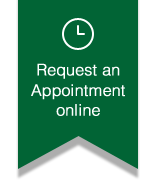
Feel like you just plunged headfirst into the deep end? Getting your braces on can feel like a massive step – and the results ahead of you will make the entire process worthwhile. But how do you make it through orthodontic treatment without making missteps along the way? We’ve gathered some of our most helpful tips for first-time patients below and grouped them into a few categories. Whether you’re searching for tips on oral hygiene, diet, or daily care, the answer is below. And if your questions still remain after reading, just get in touch!
Oral Hygiene with Braces
- Re-learn how to brush and floss – You’ve brushed and flossed thousands of times before – but that was without brackets and wires in the way. A floss threader and an interdental toothbrush could be your new best friends. These special tools will help make your oral hygiene efficient and effective.
- Prioritize cavity prevention – Avoiding tooth decay is always important, but it’s even more necessary during orthodontic treatment. If you get a cavity, braces might need to be removed in order for your dentist to fill it. This sets you back in treatment time and prolongs the months you spend in braces. Also, decalcification of your teeth could end up leaving white spots behind, which is the last thing you want to see on your newly straightened teeth.
- Use fluoride toothpaste – Fluoridated products will help fight decalcification and decay. Remember to avoid whitening toothpaste or other whitening products – your teeth may whiten, but once the braces are removed there will be spots left behind where brackets covered enamel.
- Use mouthwash – An antiseptic rinse will help reduce inflammation and promote healing. It will also lower the risk of infection or irritation from brackets/wires catching on the inside of your cheeks or your tongue.
- Put together an on-the-go cleaning kit – Get travel-sized toothpaste, floss, toothbrush, wax, and a flosser and put them in a small zippered bag you can carry with you. This way you can clean your teeth after lunch and avoid worrying that there’s food stuck in your braces.
Best Braces Diet
- Find soft foods you enjoy for post-appointment eating – These should also be foods that don’t get stuck in your braces, which causes added discomfort when cleaning. Try eggs, oatmeal, yogurt, smoothies, soups, mashed potatoes, bananas, and cheese with untoasted, soft bread.
- Eat carefully – Exposing your teeth to problem foods poses the risk of ripping them right off your teeth. If you do eat something that falls into a problem category, cut it into small pieces and chew gently.
- Keep bad guy snacks out of the house – Why expose yourself to temptation? Go over your shopping list and prioritize foods that are going to keep your braces safe. Your family members will understand – or create their own secret snack stashes!
- Trust your gut – Instead of memorizing an endless list of problem foods, consider common problem categories and go with your common sense. Bad groups include hard foods (ice, candy, popcorn), tough foods (steak, ribs, hard rolls), sticky foods (gum, taffy, caramel), and anything you bite into with your front teeth (apples, corn on the cob, crusty sandwiches). Also avoid sugary snacks and drinks, which are more likely to cause decay and which make your teeth more difficult to clean properly.
- Don’t chew on anything other than food – This means any inedible object that you might have a habit of gnawing on when you’re concentrating or bored. Pens, pencils, paper clips, and even ice (technically edible, but definitely bad for braces) all heighten your risk of breaking brackets or wires (or chipping your teeth).
Braces Care
- Treat sore teeth with care – You will experience intermittent soreness throughout your orthodontic treatment. The worst periods will be right after your monthly appointments, when you receive new wires. These wires are working hard to return to their prior positions, and moving your teeth along with them – it’s natural for a little discomfort to arise. This usually affects patients for 1-2 days after their appointment. Use a salt water mouthwash (1 tsp salt in 8 oz warm water) – swish it around your teeth for a minute and then spit it out to reduce swelling and soothe your gums. Take over the counter pain medication as needed.
- Wear a mouth guard when playing sports – Your braces need some extra protection. A mouth guard will help prevent emergencies on the playing field.
- Keep your monthly appointments – If you miss an appointment, it could take precious time to reschedule and throw your progress off track.
- Wear your rubber bands – If Dr. Thomas asks that you wear rubber bands a certain number of hours per day, be sure to follow instructions. Leaving your rubber bands off will end up making your braces take longer. Your teeth won’t shift in the precise ways your orthodontist has planned – and rubber bands will need to play a role in your treatment at some point. Why not wear them today?
- Reach out when something’s wrong – You know your teeth better than anyone. If you’re uncomfortable or you notice a wire out of place, get in touch right away. Cover the area with wax to protect the inside of your mouth.





